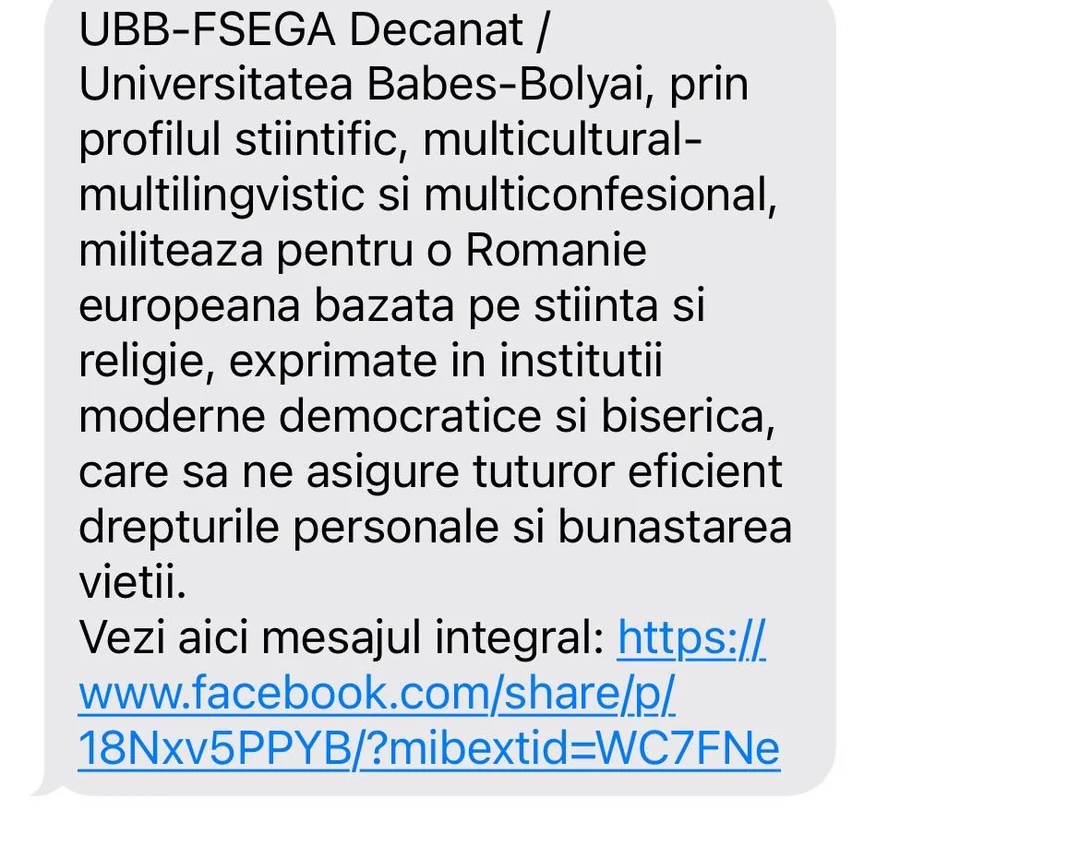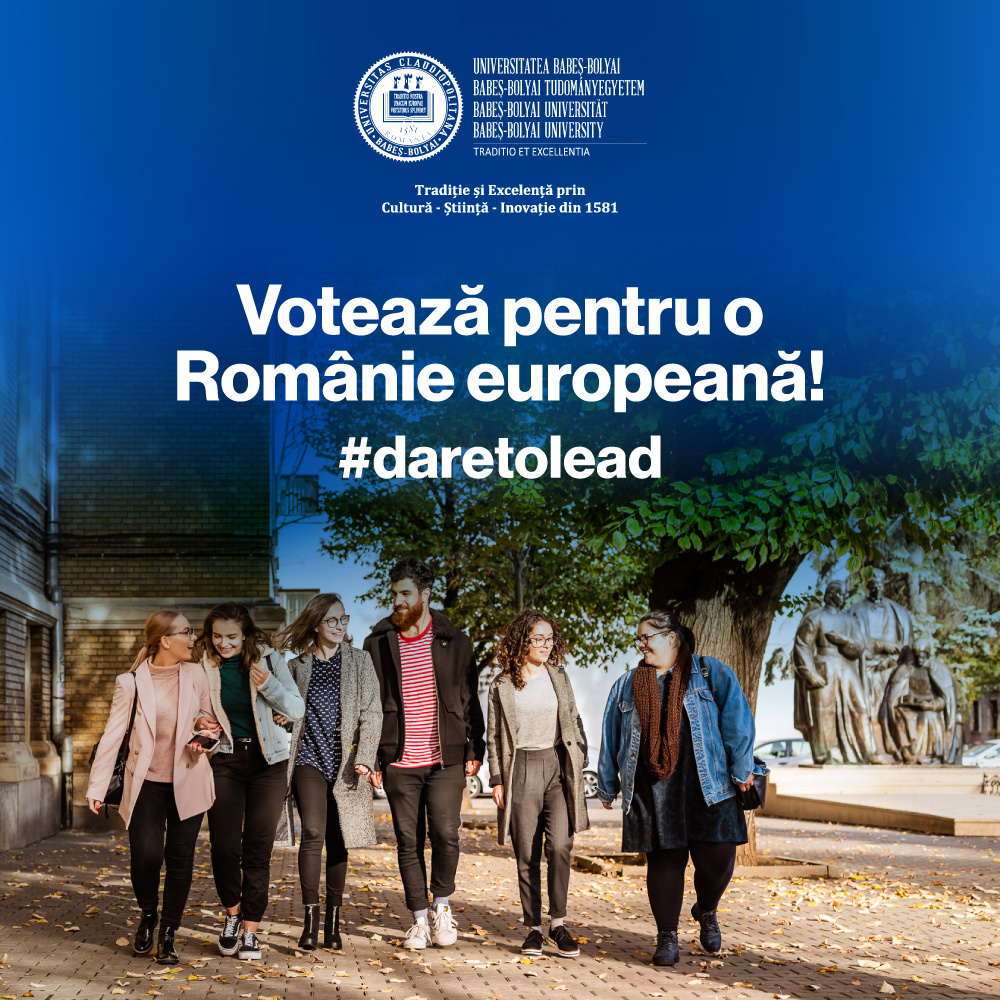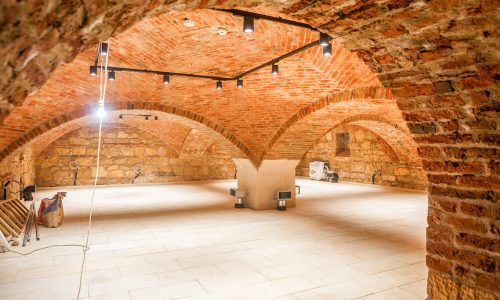Babeș-Bolyai University (UBB), one of Romania’s most prestigious institutions, recently faced public scrutiny following the publication of a statement emphasising its commitment to a European Romania “based on science and religion.” The message, shared on Facebook, sought to address values tied to modern democratic institutions, personal rights, and societal well-being but has since prompted questions about whether such communication aligns with UBB’s Code of Ethics and academic neutrality.
The Controversial Statement
UBB’s statement highlighted the university’s historical, multicultural, and multiconfessional profile, advocating for a Romania founded on both scientific rigor and religious principles. It condemned “conspiratorial and anti-democratic structures” and referenced statements by the Romanian Academy and the Orthodox Church on the dangers of obscurantism and conspiracy theories.

The post, which was also reportedly sent to students directly via SMS, also included commentary from UBB’s rector, Prof. Dr. Daniel David, urging voters to support leaders with “good euroatlantic intentions” over those aligned with anti-European or conspiratorial ideologies. The timing of this message, which came just ahead of Romania’s 2024 presidential elections, added fuel to the debate, with critics alleging a breach of academic neutrality.
Further adding to the conversation, the university shared an image with the caption, “Vote for a European Romania! #daretolead.” This slogan, coupled with the timing and tone of the statement, sparked concerns that UBB might be veering into the realm of political campaigning, a sensitive issue for a public academic institution.

Support and Criticism
Reactions to the post have been mixed. Supporters praised the university for taking a strong and principled stance. “As usual, UBB hits the nail on the head and has the courage to publicly position itself,” commented one user. Others appreciated the historical context, with some pointing out that European universities, including UBB, originated within religious institutions. “Respecting the religious roots of higher education is not contradictory to modern academic principles,” a commenter explained.
However, criticism was vocal and widespread. Some accused UBB of crossing ethical boundaries by appearing to endorse a specific political perspective. “It is illegal for a public institution like UBB to position itself in favour of a political candidate or engage in electoral campaigning,” one commenter wrote, citing the university’s own Code of Ethics (Art. 39), which prohibits discrimination or unequal treatment based on non-professional criteria such as political or religious beliefs.
Other critics pointed to the perceived contradiction between modern scientific education and religious literalism. “How do you reconcile the study of modern science with beliefs like a literal six-day creation?” questioned one commenter, underscoring concerns that the mention of religion might undermine UBB’s academic credibility.
Ethical and Academic Implications
UBB’s Code of Ethics explicitly forbids actions that could create bias or discrimination within the academic community. Critics argue that the statement’s inclusion of religion and its timing—amid a politically charged period—may breach the institution’s obligation to remain impartial and universal.
“Universities are meant to be spaces of neutrality and inclusivity,” said one critic. “Positioning itself in favour of a candidate or aligning with Orthodox values risks alienating students and staff from diverse backgrounds.”
Supporters, however, argue that the statement’s acknowledgment of religion reflects Romania’s cultural and historical realities rather than imposing any belief system. “It’s about inclusivity,” one commenter explained. “The university respects its religious heritage while remaining secular in its non-theological faculties.”
We researched the UBB Code of Ethics document, which is downloadable here and found that this post does indeed appear to contradict the following articles:
1. Academic Freedom (Article 3 & 4):
- Academic freedom ensures that members of the university can express their views freely, provided they respect ethical principles and refrain from engaging in political propaganda or religious proselytism. The post’s potential to be perceived as political propaganda or favoritism, particularly during an election season, could raise questions about compliance with this principle.
2. Prohibition of Political Propaganda (Article 6):
- UBB explicitly prohibits political propaganda conducted in or related to the university’s activities or infrastructure. Critics of the post argue that phrases like “Vote for a European Romania!” combined with the timing and message could be interpreted as politically charged, potentially violating this provision.
3. Non-Discrimination and Justice (Articles 38-39):
- The Code emphasises fairness and non-discrimination, rejecting any preferential treatment based on political or religious affiliations. The inclusion of religion in the statement, while framed as a historical acknowledgment, may appear to some as prioritising one perspective, which could create concerns about inclusivity and fairness.
4. Integrity and Collegiality (Articles 14 & 32):
- The integrity principle obliges UBB to avoid actions that might question its impartiality, especially in public communications. Collegiality demands respect for diverse opinions and cultural inclusivity. Critics argue that the statement risks alienating members of the academic community who do not share its religious or political implications.
5. Loyalty and Institutional Image (Articles 35-37):
- Loyalty entails protecting the university’s reputation and avoiding actions that might harm its image or prestige. The criticism sparked by the post highlights concerns that such messaging could affect UBB’s standing as a neutral academic institution.
6. Ethics Commission’s Oversight (Articles 42-44):
- The UBB Ethics Commission is responsible for addressing potential breaches of the Code. This situation could prompt formal scrutiny to determine whether the university overstepped ethical boundaries in its communications.
A Fine Balance
The debate around UBB’s message raises important questions about the role of public universities in balancing tradition, modernity, and neutrality. As an institution rooted in both scientific excellence and historical multiconfessionalism, UBB faces the challenge of respecting its past while maintaining an impartial and inclusive environment for a diverse academic community.
While the university has yet to respond formally to the criticism, the controversy underscores the tension between cultural identity and academic ethics in Romania, especially considering the multi-cultural and multi-faith student population which Cluj-Napoca attracts in it's 1000s every year.
Whether UBB’s message was a necessary acknowledgment of Romania’s socio-political realities or an overstep of its academic mandate remains a point of contention.



